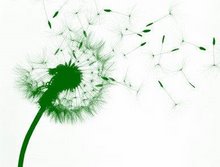Ethiopia, the country that featured in most racist jokes in my South London primary school playground. We were too young to get the punchlines, we just knew they were naughty, and that was good enough. Most focused on the extreme hunger and poverty that Ethiopians were famous for and the outcome was a bunch of kids sniggering all the way to the classroom.
It seems that this taunting isn’t limited to the cockney playgrounds of the eighties, for Ethiopia are the butt of yet another mockery. It is just as offensive, just as ill-humoured, and absolute fact. This time the outcome is a few rich coffee corporates laughing all the way to the bank.
Let me introduce the Jester.
Starbucks, the friendly, cheerful place to get your skinny mocha, the ones whose motto is “putting people before products”. The ones who have a café on what seems like every street in every town-11,946 world wide in fact. The ones who, by estimates, make a deliciously fat 582 million every year
[1]. No wonder the mermaid in their logo dons a crown, she is one rich fish.
Ethiopia, on the other hand…..
Access to clean water is enjoyed by only 22% of its people (compared to the USA’s 100%), a phone set is owned by 1 person per 100 (compared to the USA’s 113 per 100),the nation has an Under 5 mortality rate of 169 (compared to the USA’s 7), a GNI per capita of $90 (compared to the USA’s $37610) and a mortality rate of 47 (compared to the USA’s 77)
[2].Coffee beans make up 40-60% of Ethiopia’s key exports, their beans are reputed to be the finest in the world. The 15 million Ethiopians who are dependent on coffee beans see only 10% of this profit.
In an attempt to develop Ethiopia’s coffee industry- and thus strengthen the whole nations economy- their government approached Starbucks Headquarters and tried to negotiate rights to the names of the fine coffee beans. By having legal ownership of these well known names, Ethiopia would be able to have greater autonomy. Now, a name might not seem like a very big deal, but to the Ethiopian coffee industry it could mean an extra 132 million a year
[3]. That is a pretty big deal to a nation where 1 in 5 children are malnourished
[4].That was last year.
Nothing was heard for 15 months and the saying “No news is good news” couldn’t be applied here. Oxfam, an international development agency, has since found out that Starbucks put pressure on the US Patent and Trademark Office resulting in Ethiopia’s applications being denied
[5].This is revolting behaviour from a company that pride them selves on being socially responsible. The grand Jester Starbucks taste life in the dazzling royal courts at the very expense of Ethiopian coffee producers.
This mockery epitomises why so much global inequality exists, why so many Gods children have to live with disease, without clean water or food to eat and no schooling.
One of my favourite quotes is by a South American Priest, Oscar Romero. He was a fantastic chap. He said;
“We know that every effort to better society especially when injustice and sin are so ingrained is an effort that God blesses, that God wants, and that God demands of us.”If we really believe this sort of inspirational stuff we should actually be inspired to act in the face of injustice and sin! (Makes sense, eh?!)
And, in this situation it is not too tricky.
You can let Starbucks know your disappointment by boycotting their coffee, and by giving them a bell.
Follow OXFAMS instructions to do this. [1] http://seattletimes.nwsource.com/html/businesstechnology/
2003171417starbucks03.html
[2] http://library.thinkquest.org/05aug/01259/statistics_on_ethiopian_poverty.htm
[3] http://www.oxfam.org.nz/whatwedo.asp?s1=What%20we%20do&s2=Issues%20we%20work%20on&s3=Make%20Trade%20Fair&s4=Starbucks%20action
[4] http://www.irinnews.org/report.asp?ReportID=52706
[5] http://www.oxfam.org/en/news/pressreleases2006/
pr061026_starbucks






